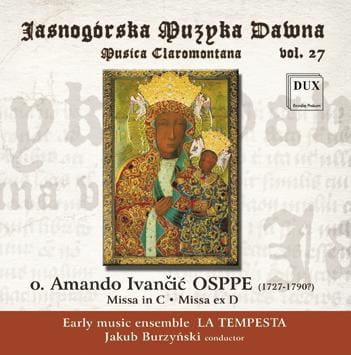Polish Music Center Newsletter Vol. 14, no. 3
PMC News
Polish Music Spring
 The Polish Music Center at the University of Southern California is pleased to invite you to our spring 2008 concert. An exciting program of music by some of Poland’s greatest composers – Chopin, Lutosławski, Paderewski, and Penderecki – will be presented by USC faculty, students, and guest artists. The concert will take place at 7:30 p.m. on 27 March 2008 at the Alfred Newman Recital Hall at USC. This performance is free and open to the public.
The Polish Music Center at the University of Southern California is pleased to invite you to our spring 2008 concert. An exciting program of music by some of Poland’s greatest composers – Chopin, Lutosławski, Paderewski, and Penderecki – will be presented by USC faculty, students, and guest artists. The concert will take place at 7:30 p.m. on 27 March 2008 at the Alfred Newman Recital Hall at USC. This performance is free and open to the public.
The program for the evening will feature several fascinating compositions for strings and piano, including Lutosławski’s 1984 Partita for Violin and Piano and Penderecki’s Second Sonata for Violin and Piano dating from 1999. Lutosławski described the Partita as “one of my most important works.” According to Midori Goto, one of the greatest violinists of our time and a renowned interpreter of modern music, Lutosławski’s Partita is “… a masterpiece for violin and piano. It contains everything one can imagine in a deeply-moving musical work: the life within this music is so powerful that both to play it and to listen to it is an overwhelming experience.”
Although Penderecki is chiefly known for his large-scale, ground-breaking orchestral works, his few chamber music compositions are very important in their own right. His First Violin and Piano Sonata dates from 1953. Written almost half a century later, the Second Sonata for Violin and Piano shares with its predecessor the idiom of tonal language. It also embraces traditional forms and modes of musical expression that Penderecki returned to in his recent compositions. This expansive, five-movement work alternates between virtuosity and introspection within its wide spectrum of moods.
Nocturnes and Mazurkas by Chopin and Paderewski, as well as the lesser-known Cantabile and Trois Ecossaises will also be featured on this program, but not in their original version for solo piano. They will be heard for the first time in a new arrangement for piano and strings by pianist and Polish Music Center Director Marek Żebrowski. Chopin composed only a few chamber music works and this selection of arrangements seeks to demonstrate that Chopin’s unforgettable piano masterpieces can be shared in a chamber setting with a violin and cello.
For this performance, please enter the USC campus at Gate 3 on Figueroa Street, where paid parking is available in Parking Structure X. Further information can be obtained by contacting the Polish Music Center at 213-821-1356, visiting the Polish Music Center Website at www.usc.edu/dept/polish_music/PolishMusicSpring08.html, or e-mailing the offices at polmusic@usc.edu
Polish Music Spring
Thursday, March 27 | 7:30 pm
Newman Hall, USC
Los Angeles, CA
Free admission
News
Um Chopin Project Goes Global
Ann Arbor, MI – The Center for Russian and East European Studies is pleased to announce the launch of The Chopin Project, an online resource dedicated to promoting the discovery, research, and pure enjoyment of Fryrdryk Chopin’s keyboard works to a worldwide community. The site builds upon The University of Michigan Chopin Project, an initiative of the School of Music, Theatre & Dance that was co-sponsored by the Copernicus Endowment; Hammell Music of Michigan; and Frederick Slutsky Arts.
In March and April 2007, Arthur Greene, professor of piano at the School of Music, Theatre & Dance, launched The Chopin Project. Greene and students from his piano studio presented a complete and chronological traversal of Chopin’s 129 works for solo piano, from his earliest surviving work, a Polonaise written at age 7, through his last Mazurka, penned in 1849. The concerts and closing symposium included talks from among the foremost Chopin scholars.
The response to the Chopin marathon – performances, research, and scholarship – was overwhelming and led to the notion to share Chopin’s genius more broadly. Greene and his students immediately preserved their efforts for posterity through a series of studio recordings produced at the University of Michigan Duderstadt Center Audio Studio (slated for release on Block M Records through the iTunes Music Store this spring). A blog initiated in 2007 has been incorporated into The Chopin Project, an interactive web portal seeking feedback, participation, and comments from those who study, perform, or simply enjoy Chopin’s masterful oeuvre.
More content is being added, including on-demand concert audio performances; detailed entries about Chopin’s solo keyboard works; notable quotations by and about Chopin; on-demand video performances; access to sheet music; further research and resources; performers’ biographies and photos; the “Chopin Currency” (Chopin in the news), and much more.
As the world’s attention begins to shift to the Chopin Bicentennial in 2010, The Chopin Project is poised to become a permanent, global clearinghouse that will let fans, students, and scholars alike, listen to their favorite Chopin works, uncover new favorites, and learn more about them.
The Chopin Project (www.chopinproject.com) is presented by Frederick Slutsky Arts. For more information, email mostafin@umich.edu.
Midem Classic Award For Poles
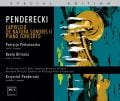 If you read our February Newsletter carefully, you already know that the CD featuring Krzysztof Penderecki’s music for violin and piano (DUX 0582) won the MIDEM Classic Award in Cannes. What you might not know is that this is the first completely Polish productionto receive this prestigious award. The CD is not only performed by Polish artists – Patrycja Piekutowska and Beata Bilińska – and comprised solely of works by a Polish composer, but it was also produced and released by the Polish record label DUX. This DUX recording won the award in the Contemporary Music Category, competing with CDs featuring compositions by Luciano Berio (Avie) and Erkki-Sven Tüür (Virgin).
If you read our February Newsletter carefully, you already know that the CD featuring Krzysztof Penderecki’s music for violin and piano (DUX 0582) won the MIDEM Classic Award in Cannes. What you might not know is that this is the first completely Polish productionto receive this prestigious award. The CD is not only performed by Polish artists – Patrycja Piekutowska and Beata Bilińska – and comprised solely of works by a Polish composer, but it was also produced and released by the Polish record label DUX. This DUX recording won the award in the Contemporary Music Category, competing with CDs featuring compositions by Luciano Berio (Avie) and Erkki-Sven Tüür (Virgin).
![]() Previous Polish successes in Cannes include Krystian Zimmerman’s recording of Bartók’s piano concertos on Deutsche Grammophon and the recording by Polish National Radio Symphony Orchestra (NOSPR) and Antoni Wit of Oliver Messiaen’s Turangalila Symphony and L’ascension with Antoni Wit on Naxos.
Previous Polish successes in Cannes include Krystian Zimmerman’s recording of Bartók’s piano concertos on Deutsche Grammophon and the recording by Polish National Radio Symphony Orchestra (NOSPR) and Antoni Wit of Oliver Messiaen’s Turangalila Symphony and L’ascension with Antoni Wit on Naxos.
Read the Midem press release about their 2008 winners here: www.midem.com/en-gb/press/pressreleases363.cfm.
Premiere & Debut For Augustyn
 Artists International Presentations and the Polish Cultural Institute are proud to present the remarkable young Polish violinist Kinga Augustyn, recent winner of A.I.P.’s annual Special Presentation Award, in her Carnegie Hall debut in Weill Recital Hall on March 8. The program will include works by Beethoven, Milhaud, Ysaye, Lutosławski, and Szymanowski, as well as the world premiere of a new work, entitled Emaus, by young Polish composer Jakub Ciupinski (see program details here). The two outstanding artists performing with Ms. Augustyn are pianist Kevin Loucks and harpsichordist Alexandra Snyder (read more about the artists here).
Artists International Presentations and the Polish Cultural Institute are proud to present the remarkable young Polish violinist Kinga Augustyn, recent winner of A.I.P.’s annual Special Presentation Award, in her Carnegie Hall debut in Weill Recital Hall on March 8. The program will include works by Beethoven, Milhaud, Ysaye, Lutosławski, and Szymanowski, as well as the world premiere of a new work, entitled Emaus, by young Polish composer Jakub Ciupinski (see program details here). The two outstanding artists performing with Ms. Augustyn are pianist Kevin Loucks and harpsichordist Alexandra Snyder (read more about the artists here).
Emaus, by Jakub Ciupinski, takes its title from the name of the Polish religious holiday celebrated in Krakow during the Easter season in which special absolution is given to parishioners. Outside the church, however, a carnival atmosphere prevails. It was written especially for Ms. Augustyn. The main motif of the piece comes from the last three pitches of Milhaud’s Sonata for Violin and Harpsichord.
Polish composer Jakub Ciupinski has studied with Krzysztof Penderecki, Zbigniew Bujarski, Edwin Roxbrough and Joe Cutler. While he writes chamber and symphonic concert music – including his Oratorio for the Memory of the Victims of the Holocaust for symphony orchestra and two choirs, premiered in Cracow in 2003 – his stylistic influences run across many genres. In his Suita for orchestra and electronics, symphonic tradition is fused with elements of beat-based electronica and IDM. He has collaborated with a variety of artists, musicians, choreographers and film directors, including Oscar-winning director Andrzej Wajda. At the age of 18 he signed a contract with Sony Music Poland. His electronica-infused world music has been frequently played on Polish radio and aired on music channels such as MTV and VIVA. His works has been performed in Poland, France, Italy, England, Scotland, the Czech Republic, Ukraine, Hungary, Canada and the U.S. He is currently studying composition with Pulitzer Prize-winning composer Christopher Rouse at The Juilliard School in New York.
Sunday, March 9, 2008, 5:30 PM
Weill Recital Hall at Carnegie Hall
57th Street & Seventh Avenue, New York, NY 10019
Tickets: $25, at 212-247-7800 or online
[Information from the Polish Cultural Inst. NY website: www.polishculture-nyc.org]
UK Premiere For Łukaszewski
The 2008 Britten Sinfonia Easter concerts, featuring the vocal group Polyphony and their conductor Stephen Layton, will highlight a stunning pairing of two masterpieces of sacred choral music. Emanating as these works do from very different eras – the late 19th and early 21st centuries – this evening promises to make for fascinating comparisons. These concerts will be the UK première tour of Paweł Łukaszewski’s Via Crucis
Fauré’s Requiem is arguably one of the best loved of all Requiem settings: its tranquil and unassuming character sets it apart from the more dramatic settings by the likes of Verdi, not least by the inclusion of the serene “Pie Jesu” and “In Paradisum” movements. Indeed, as Saint-Saëns put it, “just as Mozart’s is the only ‘Ave verum Corpus,’ this is the only ‘Pie Jesu.’”
 Music by young Polish composer Paweł Łukaszewski (left) has been heard around the globe and is championed in the UK by Stephen Layton. The immediacy of its impact belies its radiant simplicity, prompting comparisons with the sacred music of John Tavener and Arvo Pärt.
Music by young Polish composer Paweł Łukaszewski (left) has been heard around the globe and is championed in the UK by Stephen Layton. The immediacy of its impact belies its radiant simplicity, prompting comparisons with the sacred music of John Tavener and Arvo Pärt.
Friday 28 March | 7.30pm (pre-concert talk with Łukaszewski at 6:30)
Norwich Cathedral
12 The Close, Norwich, England NR1 4DH
Box Office: 01603 630000
Saturday 29 March | 8.00pm (pre-concert talk with Łukaszewski at 7:00)
Cambridge West Road Concert Hall
11 West Road, Cambridge CB3 9DP UK
Box Office: 01223 357851
[Information from the Polish Cultural Inst. UK website: www.polishculture.org.uk. See the website for noontime concert information]
Baird Composition Competition
 The latest edition of the Tadeusz Baird Young Composers Competition is now accepting composition submissions from young Polish composers. The deadline for the submission is November 30, 2008.
The latest edition of the Tadeusz Baird Young Composers Competition is now accepting composition submissions from young Polish composers. The deadline for the submission is November 30, 2008.
The works submitted must be orchestrated for 5-15 instrumentalists playing: flute, oboe, clarinet, bassoon, trumpet, trombone, percussion, harp, piano, 2 violins, viola, cello, double bass, and /or live electronics. The composition must be from 4 to 12 minutes in length and cannot be previously released, honored or performed. The competition is open to Polish composers under the age of 35. In the first round of the competition, the jury will select finalists to be performed at a concert on February 15, 2009. The final results will be announced after the concert and the awards will be presented. The Grand Prize of the competition, the “Tadeusz Baird Award,” is the equivalent of $2,500 and is funded by Alina Sawicka-Baird, wife of the late composer (pictured at right), for “the continuation of composition studies.”
Nowowiejski Music Salon
 After 30 years of effort, the Feliks Nowowiejski Music Salon has opened in the villa where the composer once lived. His villa was placed on the national monument list, which allowed the use of government funds for renovations and adaptations of the space. The salon will serve as a public museum and will also host recitals and chamber concerts, especially those featuring the music of Nowowiejski. It will cultivate the tradition of concerts that the Nowowiejski family hosted during 20’s and 30’s and after the WWII. The goal is to promote young artists and familiarize audiences with the works of Feliks Nowowiejski.
After 30 years of effort, the Feliks Nowowiejski Music Salon has opened in the villa where the composer once lived. His villa was placed on the national monument list, which allowed the use of government funds for renovations and adaptations of the space. The salon will serve as a public museum and will also host recitals and chamber concerts, especially those featuring the music of Nowowiejski. It will cultivate the tradition of concerts that the Nowowiejski family hosted during 20’s and 30’s and after the WWII. The goal is to promote young artists and familiarize audiences with the works of Feliks Nowowiejski.
Feliks Nowowiejski was born in 1877. He was a composer, conductor, organist and an educator. His most well known compositions were his oratorios: Quo Vadis, Powrót syna marnotrawnego [Return of the Prodigal Son], Swaty polskie [Polish Quarrels] and Znalezienie Świętego Krzyża [The Finding of the Holy Cross]. He was also the author of the famous patriotic anthem Rota and numerous organ, piano and choral pieces. He received the title of Papal Chamberlain for his religious music output. He died in 1946.
Łabuński Scholarship
The University of Missouri-Kansas City (UMKC) Conservatory of Music and Dance is proud to announce the establishment of the Wiktor Labunski Scholarship Endowment.
Wiktor Labunski, a well-known pianist, composer and teacher, joined the faculty of the Conservatory of Music of Kansas City (predecessor of the UMKC Conservatory) in 1938 as head of the piano department. He was director of the Conservatory from 1941 to 1955, continuing as professor of piano and artist-in-residence until 1971. He is remembered as one of the Conservatory’s most famous and colorful faculty members.
Already established as a concert pianist, composer, conductor, and teacher throughout Europe, 33-year-old Wiktor Labunski made his American debut at Carnegie Hall in 1928. In the years following, he toured as a solo pianist, and performed with the symphony orchestras of Minneapolis, Cleveland, St. Louis, Toronto, Kansas City, Oklahoma City, Tulsa, Memphis, Knoxville, Milwaukee, and Chicago. Music critics hailed his performances: “Technically a master of his instrument, he possesses vitality and definite vigor.” (New York Herald Tribune); “Splendid musicianship, nobility of tone, clarity of details and masterful architectural balance.” (Warsaw Gazeta Polska); “Labunski’s is a pianism at once strong and subtle, thoughtful and clean-cut.” (St. Louis Globe-Democrat).
Before coming to Kansas City, Labunski taught at the Krakow Conservatory and in the music programs of the Nashville Conservatory of Music and the Memphis College of Music. A prolific composer for both piano and orchestra, Labunski published a Symphony in G Minor, a Piano Concerto, a Duo-Piano Concerto, and numerous piano pieces and songs. His prodigious piano repertoire included 15 concertos.
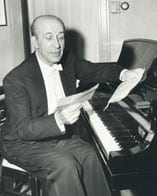 The definitive Renaissance man, Labunski spoke five languages fluently and had considerable knowledge of seven others. He was the author of a novel, Jim, and several short stories which were published in Poland. Labunski was colleague to such luminaries as Sergei Rachmaninoff, Jascha Heifetz and Artur Rubinstein (the husband of his wife’s sister).
The definitive Renaissance man, Labunski spoke five languages fluently and had considerable knowledge of seven others. He was the author of a novel, Jim, and several short stories which were published in Poland. Labunski was colleague to such luminaries as Sergei Rachmaninoff, Jascha Heifetz and Artur Rubinstein (the husband of his wife’s sister).
A dignified and elegant gentleman, Labunski reputedly always wore a vest with a watch chain, smoked cigarettes using a sliver (some say ivory) holder, and wore spats, even in the hot Kansas City summers. When the Conservatory merged with the University of Kansas City in 1959, Labunski resigned as director in protest, fearing the Conservatory would lose its autonomy and its European style of teaching.
To make a contribution to the Wiktor Labunski Scholarship Endowment using a MasterCard, Visa or Discover card, click on ecomm2.umkc.edu, and write “Wiktor Labunski Scholarship” in the “comments” section, or send a check to:
Wiktor Labunski Scholarship
UMKC Conservatory of Music and Dance
4949 Cherry Street
Kansas City, MO 64110
For more information, contact robbinsL@umkc.edu.
Kwiecień: Lucia And Król Roger
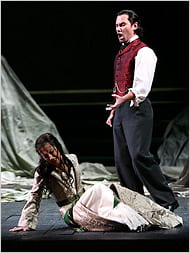 There are 3 more performances left of the Metropolitan Opera’s highly praised new production of Donizetti’s Lucia di Lammermoor, featuring opera stars Natalie Dessay – Lucia, Marcello Giordani and Giuseppe Filianoti – Edgardo, Mariusz Kwiecień – Enrico, and Maestro James Levine. This production was premiered in September 2007. According to Eric Myers of Variety, “Lucia’s venal brother Enrico is sung by superb Polish baritone Mariusz Kwiecien, whose incisive acting skills, rich voice and attractive presence have turned him into a bit of a matinee idol among opera buffs.”
There are 3 more performances left of the Metropolitan Opera’s highly praised new production of Donizetti’s Lucia di Lammermoor, featuring opera stars Natalie Dessay – Lucia, Marcello Giordani and Giuseppe Filianoti – Edgardo, Mariusz Kwiecień – Enrico, and Maestro James Levine. This production was premiered in September 2007. According to Eric Myers of Variety, “Lucia’s venal brother Enrico is sung by superb Polish baritone Mariusz Kwiecien, whose incisive acting skills, rich voice and attractive presence have turned him into a bit of a matinee idol among opera buffs.”
The New York Times also takes on the subject of this popular newcomer to the opera scene. The article, entitled “A Polish Prince Seizes the Stage,” explores not only the rave reviews that his voice and stage presence have been winning him, but also the artist behind the characters. It also shares the exiting news that Kwiecień will soon be taking on the title role in Karol Szymanowski’s Król Roger at the Opéra National de Paris. Kwiecień says the following about this rarely-heard opera from his homeland: “This is the only Polish opera our nation can sell to the world… The music is modern, but the harmony is close to the mountains of Krakow, the harmony I have in my ears.” It is likely to be a performance to be remembered, and if anyone can make it a hit, this darling of the opera world can. Read the entire New York Times article here.
Pictured above: Kwiecień and Dessay in Lucia di Lammermoor at the Met. [Photo credit: Sara Krulwich/The New York Times]
The Virtuoso Viola
The distinguished violist, Professor Jerzy Kosmala, continues his fast-paced artistic life, maintaining a demanding concert and teaching schedule. Since moving to Southern California about two years ago, he has been on the faculty of the University of California, Irvine, where he has performed on several occasions already. His next public appearance will be at a concert scheduled for March 8, 2008 at 8 p.m. in Winifred Smith Hall on the UCI campus. Maestro Kosmala will be joined by pianist Lorna Griffitt in a fascinating program of viola and piano works written in the year 1919 by Hindemith, Clarke, and Bloch.
A former member of the Krakow String Quartet and the renowned Eastman String Quartet, Dr. Kosmala is a student of the legendary William Primrose, Eugenia Umińska, Francis Tursi, and other masters, and a graduate of the Krakow Academy of Music, Eastman School of Music, and Indiana University. He has just returned from a three-week teaching engagement at the Royal Academy of Music in London. This summer, he will be teaching and performing at the International Interpretation Courses in Łancut, Poland, and at the Summer Academy of Music in Żagań, Poland. Dr. Kosmala will also serve as judge in the International Viola Competition in Bled, Slovenia, the All Poland Viola Competition in Poznań, Poland, and the most prestigious International Viola Competition in Munich, Germany. This fall, he will travel to Korea to conduct numerous master classes, performances, and recordings.
Tickets for this concert are available at the UCI Arts Box Office and Ticketmaster.com. For further information and reservation, please call 949.824.2787.
Virtuoso Viola recital, Jerzy Kosmala – viola
Saturday, March 8 | 8:00 p.m.
Winifred Smith Hall, UC Irvine
Irvine, CA (directions: www.arts.uci.edu/article.php?a_id=1015)
[MZ]
Warsaw: A Musical Drama
“The dream of my life has come true. I’ve lived to see a Jewish defense in the ghetto in all its greatness and glory.” -Mordechai Anielewicz, commander of the Warsaw Ghetto Uprising
Warsaw: A Musical Drama, a fictionalized musical drama featuring an ensemble of Broadway actors, is based on the true story of the 1943 Warsaw Ghetto Uprising. Told through a richly harmonic score, Warsaw follows the life of Roman, a young Jewish man, who is forced to make difficult choices to save himself and his loved ones. The book and lyrics are by John Atkins and the music is by William Wade.
A staged reading of Warsaw: A Musical Drama, directed by Jamibeth Margolis, will be presented on March 2nd at 1:30pm in the Edmond J. Safra Hall of the Museum of Jewish Heritage. A conversation with the artists about this work in progress will follow the show. This is presented in conjunction with the special exhibition Daring to Resist: Jewish Defiance in the Holocaust.
Warsaw: A Musical Drama (staged reading)
Sunday, March 2, 1:30 PM
Edmond J. Safra Hall – Museum of Jewish Heritage
Chopin’s 198th Birthday
 The Embassy of the Republic of Poland and The Polish American Arts Association are presenting a concert celebrating the 198th birthday of Fryderyk Chopin. The concert will feature Alberto Nose of Verona, Italy, who was the laureate of the 2000 Chopin Competition in Warsaw, performing works by Chopin and Szymanowski.
The Embassy of the Republic of Poland and The Polish American Arts Association are presenting a concert celebrating the 198th birthday of Fryderyk Chopin. The concert will feature Alberto Nose of Verona, Italy, who was the laureate of the 2000 Chopin Competition in Warsaw, performing works by Chopin and Szymanowski.
A reception will follow the concert. Seating is limited. Tickets are available by reservation only – for tickets, please call (301)929-0035 or email rzo@jhu.edu (Dr. Richard Okreglak).
Alberto Nose Recital
Saturday, March 15 | 6:00pm
Embassy of the Republic of Poland
2640 16th Street NW
Washington, DC
Cavani Quartet At Kosciuszko
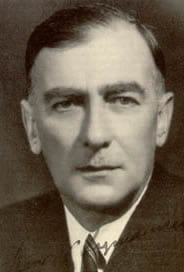 The Cavani String Quartet will be performing their Kosciuszko Foundation debut on Sunday, March 9, at 3pm. Their program features the String Quartet No. 2, Op. 56 of Polish master composer Karol Szymanowski (right), as well as works of Bartok – String Quartet #2, Op. 17 and Beethoven – String Quartet in F Major, Op. 135.
The Cavani String Quartet will be performing their Kosciuszko Foundation debut on Sunday, March 9, at 3pm. Their program features the String Quartet No. 2, Op. 56 of Polish master composer Karol Szymanowski (right), as well as works of Bartok – String Quartet #2, Op. 17 and Beethoven – String Quartet in F Major, Op. 135.
The Cavani String Quartet, winner of the prestigious Naumburg Chamber Music Award, has been described by the Washington Post a “completely engrossing, powerful, and elegant,” An irresistible presence on stage, the Quartet concertizes regularly in major series and festivals throughout North America and Europe. It is made up of four young women – Annie Fullard & Mari Sato, Violin; Kirsten Docter, Viola; and Merry Peckham, Cello – who combine a busy performing schedule with teaching at the Cleveland Institue
Active proponents of the music of our time, the Quartet has commissioned and performed an international array of living composers and has won numerous awards for its programming. Frequently featured on NPR and St. Paul Sunday, radio and television, they are committed to educational outreach through their “informances” at schools and colleges. For ten years, they have been the Quartet-in-Residence at the Cleveland Institute of Music.
Cavani String Quartet at the Kosciuszko Foundation
Sunday, March 9, at 3pm
The Kosciuszko Foundation
15 East 65th Street
New York, NY 10065
Tickets are $30 ($25 for KF members), including an artist reception.
Call (212) 734-2130.
Szymanowski Quartet in L.A.
 The prize-winning Szymanowski Quartet will perform in concert in the Doheny Mansion’s Pompeian Room on Saturday, 29 March at 8:00 pm. The concert will be preceded by a short talk at 7:45 pm and followed by a catered artist reception. The Warsaw-based ensemble will apply its “superb technical control, innate musicality and extraordinary sense of ensemble” (The Strad) to string quartets by Haydn (in G, Op. 77/1), Shostakovich (No. 8) and Beethoven (in G, Op. 18/2), along with the “Nocturne and Tarantella” by its namesake, Karol Szymanowski.
The prize-winning Szymanowski Quartet will perform in concert in the Doheny Mansion’s Pompeian Room on Saturday, 29 March at 8:00 pm. The concert will be preceded by a short talk at 7:45 pm and followed by a catered artist reception. The Warsaw-based ensemble will apply its “superb technical control, innate musicality and extraordinary sense of ensemble” (The Strad) to string quartets by Haydn (in G, Op. 77/1), Shostakovich (No. 8) and Beethoven (in G, Op. 18/2), along with the “Nocturne and Tarantella” by its namesake, Karol Szymanowski.
Founded in Warsaw in 1995, the Szymanowski Quartet has developed into one of the most charismatic string quartets of the younger generation. Awards at well-known competitions, including the “Premio Vittorio Gui” in Florence and the 1997 “In Memoriam Dmitri Shostakovich” in Hanover, soon confirmed the extraordinarily high standards of the Quartet. In 1999 they won both the second prize and the audience prize at the International Chamber Music Competitions in Osaka and Melbourne. In 2005 the Szymanowski Quartet was awarded the prestigious Polish Karol Szymanowski Award for its “unique artistry in the interpretation of the music of Karol Szymanowski and for the consistent international furthering of this music.”
Built in 1899 by the firm of Theodore Eisen and Sumner Hunt, the Doheny Mansion has been the centerpiece of the Da Camera Society’s concert series for over thirty years. The Pompeian Room, with its spectacular dome of gold-favrile Tiffany glass, remains one of the premier environments in Los Angeles in which to enjoy chamber music. “For a melding of the creative arts of architecture and music, there is nothing in Los Angeles as sublime.” (Los Angeles Times)
For further information or to purchase tickets, call 213-477-2929 or visit www.dacamera.org.
For more Polish music events around the world in March, visit our Calendar of Events.
Fryderyki 2008
Fryderyki Nominations
 The Polish Phonographic Academy has announced the nominations for the 2008 edition of the Fryderyki Award. The Academy has 872 members from the music press, recording industry and musicians. Each member can nominate releases from the submitted lists and then vote for one in each category. The voting process is confidential.
The Polish Phonographic Academy has announced the nominations for the 2008 edition of the Fryderyki Award. The Academy has 872 members from the music press, recording industry and musicians. Each member can nominate releases from the submitted lists and then vote for one in each category. The voting process is confidential.
This year’s nominees in Classical Music and Jazz are:
CLASSICAL MUSIC
Album of the Year – Choral and Oratorio Music
- BOCCHERINI, Luigi – Stabat Mater
- Jasnogórska Muzyka Dawna Vol. 21 [Early Music from Jasna Góra Vol. 21]
- Musica Sacromontana – Józef Zeidler
- Panichida – Prawosławne nabożeństwo żałobne [Orthodox Funeral Ritual]
Album of the Year – Early and Baroque Music
- Handel – Xerxes Arias
- Jasnogórska Muzyka Dawna Vol. 14 / Ciemne jutrznie [Early Music from Jasna Góra Vol. 14/Dark Lauds]
- Muzyka Polskiego Renesansu [Music of the Polish Renaissance]
Album of the Year – Chamber Music
- LUTOSŁAWSKI – Piano Duo
- MACIEJEWSKI, Roman – Kompozytor i pianista [Composer and Pianist]
- ZARĘBSKI, BŁAŻEWICZ – Polskie kwintety fortepianowe [Polish Piano Quintets]
Album of the Year – Solo Music
- CHOPIN – Polonezy [B] SACD & CD. Wydanie Narodowe. Seria B. Vol. 1 [Polonaises, National Edition, Series B. Vol. 1]
- CHOPIN – Preludia. Rafał Blechacz
- New Polish Music
- PAGANINI, Niccolo – 24 Kaprysy [24 Caprices]
- SZYMANOWSKI, Karol – Fantazja C-dur op. 14, Maski op. 34, Harnasie op. 55
Album of the Year – Symphonic and Concerto Music
- KARŁOWICZ, Mieczysław; MŁYNARSKI, Emil – Polish Spirit. Nigel Kennedy
- KURPIŃSKI, Karol – Z Wielkopolski Rodem [Born in Wielkopolska]
- SZOSTAKOWICZ – Cello Concertos
Album of the Year – Contemporary Music
- ESZTÉNYI, Szabolcs – Bramy ogrodu [Garden Gates]
- KILAR, Wojciech – Magnificat, Victoria
- ŁUKASZEWSKI, Paweł – Sacred Music
- MORYTO, Stanisław – Pieśni [Songs]
- ZUBEL, Agata; DUCHNOWSKI, Cezary – ELETTROVOCE
Album of the Year – Vocal, Opera, Operetta Ballet
- PADEREWSKI, Ignacy Jan – Complete Songs
- SZYMANOWSKI, Karol – Songs. Ops 31 & 49
- WAGNER, Richard – Der fliegende Holländer / Holender Tułacz [The Flying Dutchman]
Phonographic Debut of the Year
- LUTOSŁAWSKI PIANO DUO: Emilia Sitarz/Bartłomiej Wąsik (album: „Lutosławski Piano Duo” – cat: Chamber Music)
- Anna MIKOŁAJCZYK (album: „Szymanowski: Songs” – cat: Vocal, Opera, Operetta, Ballet)
- Anna RADZIEJEWSKA (album: „I.J. Paderewski: Complete Songs” – cat: Vocal, Opera, Operetta, Ballet)
Composer of the Year
- Szabolcs ESZTÉNYI
- Wojciech KILAR
- Paweł ŁUKASZEWSKI
- Stanisław MORYTO
- Paweł SZYMAŃSKI
Best Recording of Polish Music
- CHOPIN – Preludia. Rafał Blechacz
- ESZTÉNYI, Szabolcs – Bramy ogrodu [Garden Gates]
- KARŁOWICZ, Mieczysław; MŁYNARSKI, Emil – Polish Spirit
- LUTOSŁAWSKI – Piano Duo
- ŁUKASZEWSKI, Paweł – Sacred Music
JAZZ
Jazz Album of the Year
- MICHAŁ KULENTY; MARCIN MASECKI (Polonia Records)
Przesłanie [Message] - HENRYK MIŚKIEWICZ (Grami Miśkiewicz Sp. j.)
Full Drive 2 - MAREK NAPIÓRKOWSKI (Universal Music Polska)
Wolno [Slowly] - PTASZYN WRÓBLEWSKI QUARTET (BCD Records)
Supercalifragilistic - PIOTR WOJTASIK (SO Jazz Records – Stowarzyszenie Orkiestra Jazzowa)
Circle
Jazz Musician of the Year
- Henryk MIŚKIEWICZ
- Zbigniew NAMYSŁOWSKI
- Marek NAPIÓRKOWSKI
- Darek OLESZKIEWICZ
- Piotr WOJTASIK
For a list of nominees in other categories, details on the nominees listed here, or information about the awards and Phonographic Academy, please visit www.fryderyk2008.pl.
Awards
Sikora: Storm Of The Year
 The Tri-City edition of Gazeta Wyborcza had awarded Sikora’s Oliwa Concerto for organ and Orchestra.
The Tri-City edition of Gazeta Wyborcza had awarded Sikora’s Oliwa Concerto for organ and Orchestra.
In a special poll, readers of the Tri-City Gazeta Wyborcza have selected artists who have contributed something innovative and special, something worth remembering—a kind of cultural “Storm of the Year.” This award was given in seven categories: theatre, literature, visual arts, classical music, rock-jazz and alternative music, film and multimedia, and arts organization. The gala award ceremony was held on February 29, 2008, and was carried live by Polish Television studio in Gdańsk. The “Storm of the Year 2007 Award” in the field of classical music was given to composer Elżbieta Sikora for her composition Oliwa Concerto for Organ and Orchestra.
Elżbieta Sikora was born in 1944 in Lwów and studied during the years 1963-1968 at the Warsaw Academy of Music, specializing in Music Recording. She continued her studies of electronic music in Paris with Pierre Schaeffer and François Bayle. After returning to Warsaw in 1970, she studied composition with Tadeusz Baird and Zbigniew Rudziński, graduating with a diploma in 1977. Elżbieta Sikora settled in France in 1981 on a French government scholarship and received study grants from the city of Mannheim and the Kosciuszko Foundation that led to her brief association with Stanford University. Since 1999 Elżbieta Sikora has been a professor at the Wrocław Academy of Music. Her chamber opera, Ariadna, was given the Second Prize at the Weber Competition in Dresden in 1978; in 1982 she received the First Prize in a competition for women composers in Mannheim for Guernica—Hommage a Pablo Picasso—that in addition to numerous other prizes and distinctions that she has received throughout the last 20 years. A recording of Elżbieta Sikora’s compositions on the Chant du Monde label was awarded the 2003 prize of Académie du Disque Lyrique in Paris, France. She received the Chevalier’s Cross of Merit of the Republic of Poland in 1997 and the Chevalier de l’Ordre des Arts et des Lettres in France in 2004.
[Information translated from the PWM website]
Festivals
Beethoven Festival
 The 12th edition of the Ludwig van Beethoven Festival will take place in Warsaw between March 9 and 22, 2008. The festival will open with a performance of Beethoven’s Missa Solemnis, by the Sinfonietta Cracovia and the National Philharmonic Choir conducted by Kazimierz Kord with Amanda Mace – soprano, Lioba Braun – mezzosoprano, Jorma Silvasti – tenor, René Pape – bass. In all there are 22 concerts scheduled to take place in Warsaw, with additional concerts in Białystok, Kraków, Łódź and Gdańsk. In addition to concerts, there will be master-classes by world-class artists and an International Symposium “Beethoven and His Vienna.” For more information about the festival and for detailed information about the program and artists please visit www.beethoven.org.pl.
The 12th edition of the Ludwig van Beethoven Festival will take place in Warsaw between March 9 and 22, 2008. The festival will open with a performance of Beethoven’s Missa Solemnis, by the Sinfonietta Cracovia and the National Philharmonic Choir conducted by Kazimierz Kord with Amanda Mace – soprano, Lioba Braun – mezzosoprano, Jorma Silvasti – tenor, René Pape – bass. In all there are 22 concerts scheduled to take place in Warsaw, with additional concerts in Białystok, Kraków, Łódź and Gdańsk. In addition to concerts, there will be master-classes by world-class artists and an International Symposium “Beethoven and His Vienna.” For more information about the festival and for detailed information about the program and artists please visit www.beethoven.org.pl.
Discography
Reviving Music And Memory
from Dodatek Promocyjny (Promotional Supplement, for the newspaper Rzeczpospolita)
15 February 2008
 For the first time in history, the musicians from the Podlasie Region have recorded works by Zygmunt Stojowski—the composer, pianist, and pedagogue. The recording will be released later this Spring.
For the first time in history, the musicians from the Podlasie Region have recorded works by Zygmunt Stojowski—the composer, pianist, and pedagogue. The recording will be released later this Spring.
This CD contains an unusual composition—a cantata for soloists, choir and orchestra, entitled A Prayer for Poland. It is a moving work that testifies to a strong emotional bond with Poland and a great love of the homeland on the part of this composer. The album also contains the Suite in E-flat Major, Op. 9, dedicated to the famous conductor Hans von Bülow, who praised the work and performed it at one of his last concerts. Peter Tchaikovsky, Johannes Brahms and Edward Elgar have likewise admired this work that contains many national references. The other composition recorded by the Białystok musicians is Spring, Op. 7, a cantata for a mixed choir and orchestra.
The audience heard Zygmunt Stojowski’s compositions for the first time on November 11 last year at a concert given by the Białystok Philharmonic in celebration of Poland’s Independence Day.
Stojowski’s compositions were recorded in the Concert Hall of the Białystok Philharmonic. The performers included the Choir and Orchestra of the Białystok Philharmonic under the baton of Marcin Nałęcz-Niesiołowski, and the soloists: Marta Wróblewska (soprano), Maciej Bogumił Nerkowski (tenor) and Rafał Sulima (organ). Professor Violetta Bielecka—the artistic director of the choir—had prepared the vocal ensemble.
The Białystok Philharmonic has over ten commercial recordings in its catalogue. The first, dating from 1998, was critically acclaimed and nominated for the Fryderyk ’99 Award. Jakub Jakowicz, an outstanding young violinist, was invited as soloist for this recording. For the centennial anniversary of Giuseppe Verdi, in February 2001 the orchestra recorded his most famous overtures and arias, featuring a renowned soloist, Kaludi Kaludov.
Also in 2001, Białystok Philharmonic and the great diva, Teresa Żylis-Gara, recorded a disc of works by French composers. The orchestra’s other projects included CDs with works by Johann Strauss Sr., Johann Strauss Jr., Eduard Strauss and Franz Liszt, the latter featuring a great pianist, Waldemar Malicki. The premiere recording of works by Alexander Tansman in performance by the Białystok Philharmonic was released in 2005.
For many years now, the Opera and the Philharmonic Orchestra of Białystok have collaborated on numerous projects with the well-known and highly-praised recording company, Dux Records.
–ab
[Translated from the Polish by MZ]
Fontana Review
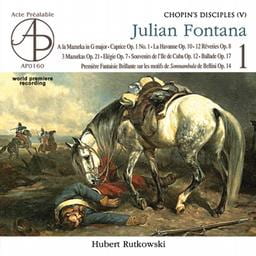 by Gregor Benko
by Gregor Benko
American writer, lecturer and record producer
Founder of International Piano Archives at Maryland (IPAM)
Julian Fontana, Piano works
Hubert Rutkowski, piano
AP 0160
JULIAN FONTANA’s name is one that should be revered by all lovers of Chopin, not only for what he did for the composer while he was alive, but for also posterity by his rescuing many unpublished compositions, including the FantasieImpromptu, after Chopin’s death. Born in 1810 like the composer, Fontana was one of the students in the boarding school run by Chopin’s father. At the school the two shared a first prize when they were fifteen. At parties Chopin would play until he was exhausted, and then Fontana would replace him. Although he played fluently and beautifully, it was said that this was a “humbler replacement,” according to the diary of poet Dominik Magnuszewski’s sister, who was there. Fontana was gifted as a composer, pianist, linguist and much else, but it was his lot to be overshadowed by a supreme genius.
In his letters to Fontana (fifty survive), Chopin addressed his friend in terms of extreme closeness and tenderness most often, “My Dearest,” but this didn’t prevent him from abusing Fontana, sometimes mildly berating him for his admiration of all things English, but more often ruthlessly ordering the poor man to act as his unpaid servant. Chopin had written to another close friend, Albert Grzymala (September 29, 1839): “..Fontana he’ll do anything for me, and in business he’s as exact as an Englishman.” Chopin used Fontana mercilessly, foremost as a music copyist and personal agent in dealing with publishers and money matters such as paying the rent, the postman, and the woman who sold flowers, but also instructing him on the details of how he was to find inexpensive servants, how to order pants, waistcoats and gloves to be made by fashionable tailors, how to find a suitable apartment for him and then to pick out wallpaper and find furniture repairmen when having the apartment redecorated, where to find two kinds of perfume, scented soap and an elegant backscratcher plus an inflatable pillow that Chopin wanted, and much much more. In a letter the composer wrote in June, 1841, he directed Fontana to obtain two books (Cherubini on counterpoint and Kastner on fugues,) and to “give my love to Alkan if you see him.”
A few weeks later Chopin was annoyed when a pushy pupil (Marie de Rozièrs) seemed to be insinuating herself into his private life. On August 24 he wrote Fontana: “Between ourselves she’s an unbearable old sow …. a person to avoid, for she only has to touch something to make a great indiscretion. In a word, she’s an old maid. We bachelors are far better…” In September Chopin was piqued by Liszt’s pride and grand seigneurial successes, and confided to Fontana: “Liszt is bound to become a deputy, or maybe even a King in Abyssinia or the Congo, but as for the themes of his compositions, they will lie forgotten…”
George Sand hardly knew him, but didn’t like Fontana, for he wrote to Chopin dutifully once a week with news about the composer’s business and affairs that he was managing, and these letters seemed to trouble Chopin. Sand could not read these letters in Polish.
It was just another indignity that Fontana had to endure to serve genius, and he got little from the onesided relationship. In his own life he was sinking deeper and deeper into poverty, as his efforts to make his way as a pianist and composer were continually overshadowed (although Chopin did allow him to stay rent free in his apartment while he was traveling.)
By 1842 Fontana had had enough, and wrote his sister in May: “I always relied on one friend, who was to open up my career for me, but who has been consistently dishonest and false…” Scholars say there is no question this “one friend” was Chopin. Grzymala replaced Fontana as Chopin’s amanuensis, and Fontana went to the Americas. It was not a clean break, and when the revolutions of 1848 arrived, Fontana wrote to Chopin that he wanted to return to defend Poland. Chopin replied that it would be better to wait: “It won’t come without horrors, but at the end of it all, there must be a great, magnificent Poland, a real Poland.” Neither lived to see this.
Chopin died shortly thereafter, and his family asked Fontana to undertake the task of putting the musical legacy in order. It took ten years, but Fontana did a splendid job editing and publishing the many Chopin compositions that hadn’t yet been published. But his own life was tragic. He went deaf, and when he was forced by penury to live off the charity of his son, he committed suicide at the age of 68.
The greatest loss is that Fontana did not undertake to write a biography of his friend, for his personal knowledge of Chopin and his literary gifts would have resulted in an important document. But surely he did enough for Chopin, and he had his own life. History has not been kind to Fontana, with some writers referring to him as a musical “mediocrity.” Certainly Fontana’s piano playing is gone forever, but his compositions were published. Did the same writers who casually dismissed him bother to unearth these and play them before making their cruel judgments? I doubt it.
Now comes Polish pianist and author Hubert Rutkowski, who has recorded more than twenty of Fontana’s compositions. These are excellent performances in excellent sound, and present us with the opportunity to assess Fontana as a composer.
It is not unexpected that Fontana does not emerge as a great genius, but his music has its own merits, and is well worth hearing. Certainly the influence of Chopin cannot be denied, and the little unpublished composition in G entitled “A la Mazur,” his earliest surviving work written when he was twentythree, could easily be mistaken for one of Chopin’s lesser works. It is entirely idiomatic for the piano, and must have sounded heavenly on the woodframe, light tension pianos of the day; Mr. Rutkowski makes it sound heavenly on a modern piano.
All of Fontana’s compositions display a remarkable feeling for the pianistic idiom. More surprising is the obvious influence of Liszt (considering his master Chopin’s disdain), but do not think Fontana is copying Liszt when you hear familiar strains in La Havanne. Yes, there is copying, but it seems it was Liszt who copied Fontana eighteen years later in his Spanish Fantasy.
Fontana’s years in Cuba colored much of his music, and he was the first European composer to incorporate Caribbean and other native motives, rhythms and accents into his compositions. Suddenly Gottschalk’s music does not seem so unique. Fontana’s infectious rhythms and melodies often sound as if he had mixed Chopin, Gottschalk and Liszt together. It is delicious. Mr. Rutkowski obviously loves this music and makes a good case for it. There is room in the world for music that is deliberately not profound. I would never give up my Gottschalk or Moszkowski—nor, after this, my Fontana.
Per Clavicembalo Moderno
 Per clavicembalo moderno
Per clavicembalo moderno
Hanna KULENTY (*1961) – E for E (1991) for harpsichord; Zbigniew BARGIELSKI (*1937) Le cristal flamboyant for harspichord and tape; Marta PTASZYŃSKA (*1943) – Touracou(1974) for harpsichord; Wojciech WIDŁAK (*1971) – Chromatic Fantasy (2003) for harpsichord; Marcel CHYRZYŃSKI (*1971) – Reflection No. 2 (2005) for harpsichord; Aleksandra GRYKA (*1977) – Nonstopping (2000) for harpsichord; Zygmunt KRAUZE (*1938) – Commencement (1982) for harpsichord; Włodzimierz KOTOŃSKI (*1925) – Aurora borealis (1998) for harspichord and tape
Gośka Isphording, harpsichord
PWM/DUX 0605
This album was released jointly by PWM Music Publishers and DUX Records. The new recording was promoted during the “Musica Polonica Nova” festival on February 19th, 2008.
According to Magdalena Chmielowska (Transl. Lindsay Davidson):
On this recording, “Per clavicembalo moderno” we find compositions by contemporary Polish composers for harpsichord and for harpsichord and tape. There are contributions by the older generation – W. Kotoński, Z. Bargielski, Z. Krauze, through the middle generation – M. Ptaszyńska, H. Kulenty, the younger generation – represented by M. Chyrzyński and W. Widłak, right to the youngest – A. Gryka. Some of the composers discarded the historical tradition and took on the sharp sound and wealth of the modern pedal instrument. In some of the other pieces they chose the simple colours of the baroque copy.
[from the PWM News section]
New on DUX
 Chopin – Piano recital
Chopin – Piano recital
Fryderyk Chopin (1810-1849): Study in C minor Op. 10 No. 12, Ballade in G minor Op. 23, Fantaisie-Impromptu in C sharp minor Op. 66, Nocturne in E minor Op. 72 No. 1, Prelude in E minor Op. 28 No. 4, Prelude in H minor Op. 28 No. 6, Prelude in D flat major Op. 28 No. 15, Prelude in D minor Op. 28 No. 24, Waltz in C sharp minor Op. 64 No. 2, Waltz in D flat major Op. 64. No. 1, Mazurka in B flat major Op. 7 No. 1, Mazurka in C major Op. 24 No. 2, Mazurka in E minor Op. 41 No. 2, Mazurka in A minor Op. 68 No. 2, Polonaise in A major Op. 40 No. 1, Polonaise in A flat major Op. 53, Lullaby in D flat major Op. 57
Janusz OLEJNICZAK, piano
DUX 0618
 Karol Szymanowski – Hagith
Karol Szymanowski – Hagith
The first full opera written by Karol SZYMANOWSKI (1882-1937) – Hagith (1913)
Vocalists: Wioletta Chodowicz, Taraz Ivaniv, Adam Zdunikowski, Wiktor Gorelikow, and Maciej Krzysztyniak.
Orchestra and Choir of Wroclaw Opera House, Tomasz Szreder – musical director
DUX 9589
World Premiere Recording
 Jasnogórska Muzyka Dawna – Musica Claromontana vol. 27
Jasnogórska Muzyka Dawna – Musica Claromontana vol. 27
Amando Ivančić OSPPE (1727-1790?) : Missa in C, Missa ex D
La Tempesta – Jakub Burzyński, conductor
DUX 0357
Saxophone Romances
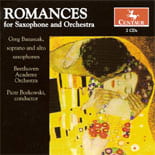 Romances for Saxophone and Orchestra.
Romances for Saxophone and Orchestra.
Joanna Bruzdowicz: Largo for Soprano Saxophone and String Orchestra; David Morgan: Three Vignettes for Alto Saxophone and String Orchestra; Subaram Raman: Aria for Alto Saxophone and String Orchestra-Appassionato; Wojiech Kilar: Vocalise; Heitor Villa-Lobos: Bachianas brasilieras #5 (Aria only) for Saxophone and Celli; Alan Hovhaness: Concerto for Saxophone and String Orchestra, Op. 344; James Leatherbarrow: Don Quixote in Love for Soprano Saxophone and Orchestra; and Eugene Bozza: Andante ma non troppo (arr. Hunter Ewen)
Greg Banaszak, soprano and alto saxophones; Beethoven Academy Orchestra, Piotr Borkowski, conductor
Centaur Records: CRC 2889/2890
Szeligowski CD
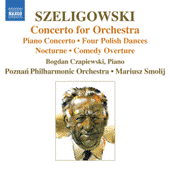 SZELIGOWSKI: Concerto for Orchestra / Piano Concerto / 4 Polish Dances
SZELIGOWSKI: Concerto for Orchestra / Piano Concerto / 4 Polish Dances
Tadeusz Szeligowski: Comedy Overture, 4 Polish Dances, Piano Concerto, Nocturne, Concerto for Orchestra
Bogdan Czapiewski – piano, Poznań Philharmonic Orchestra, Mariusz Smolij – conductor
Naxos 8.570371
After the Second World War, the Polish composer Tadeusz Szeligowski settled in Poznań, where he was instrumental in the formation of the Poznań Philharmonic and served as its first director. His Comedy Overture is a short, brilliantly orchestrated composition. In his Four Polish Dances, Szeligowski explores the rich culture of his homeland’s folk music, as did many of his Polish contemporaries. The virtuosic Piano Concerto is written in the neo-classical style that Szeligowski mastered during his studies in Paris, and his Concerto for Orchestra, one of the first compositions to tackle this form, is an impressive contribution to the European orchestral repertoire of the first half of the twentieth century.
[Quoted from the Naxos website]
Polish Jazz On ECM
 Marcin Wasilewski Trio – January
Marcin Wasilewski Trio – January
Marcin Wasilewski piano, Sławomir Kurkiewicz double-bass, Michał Miśkiewicz drums
ECM2019
This new album by the Marcin Wasilewski Trio was recently released worldwide and has already hit the top 100 list of the best selling records on Amazon.com. The CD was recorded for ECM, which releases artists of such renown as Keith Jarret, Chick Corea, Jan Garbarek, Pat Metheny, John Abercrombie, Charlie Haden, Art Ensemble of Chicago and Tomasz Stańko.
Performances
Anderszewski US Tour
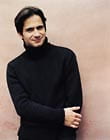 Polish pianist Piotr Anderszewski spent the latter half of February giving a mini-tour of the United States, with recitals in Philadelphia, PA (Feb. 18), Aspen, Boulder and Denver, CO (Feb. 20, 22 & 23), and Laramie, WY (Feb. 24). The recital program consisted of: Bach – Partita No. 2, Schumann – Humoresque, Szymanowski – Masques Op. 34, and Bach – Partita No. 1.
Polish pianist Piotr Anderszewski spent the latter half of February giving a mini-tour of the United States, with recitals in Philadelphia, PA (Feb. 18), Aspen, Boulder and Denver, CO (Feb. 20, 22 & 23), and Laramie, WY (Feb. 24). The recital program consisted of: Bach – Partita No. 2, Schumann – Humoresque, Szymanowski – Masques Op. 34, and Bach – Partita No. 1.
In his article entitled “Anderszewski awes Kimmel crowd,” Philadelphia Courier-Post reviewer Robert Baxter describes the audience’s reaction to Anderszewski’s Philadelphia recital debut: “Philadelphia concert audiences are notoriously prone to cough and fidget. Total silence pervaded the Perelman Theater while Anderszewski was playing. Everyone was concentrating intently on the pianist’s wondrous playing.”
Chopin Project II
 Inspired by the 15th International Chopin Competition in Warsaw, the Thousand Oaks Philharmonic and the Music Teachers’ Assn. of CA – Conejo Valley Branch held the Chopin Project II on February 15, featuring a panel discussion and recital. The Project, a solo piano recital, will feature various selections by the composer, performed by the same artists who appeared in the sold-out Chopin Project I. This is a fundraising event sponsored by the Thousand Oaks Philharmonic, celebrating the music of Frederic Chopin.
Inspired by the 15th International Chopin Competition in Warsaw, the Thousand Oaks Philharmonic and the Music Teachers’ Assn. of CA – Conejo Valley Branch held the Chopin Project II on February 15, featuring a panel discussion and recital. The Project, a solo piano recital, will feature various selections by the composer, performed by the same artists who appeared in the sold-out Chopin Project I. This is a fundraising event sponsored by the Thousand Oaks Philharmonic, celebrating the music of Frederic Chopin.
The panel discussion preceding the recital was moderated by EDWARD FRANCIS and featured Dr. WOJCIECH KOCYAN, professor of piano at Loyola University and contestant in the 14th International Chopin Competition, French-born pianist FRANÇOISE RÉGNAT, Professor of piano at CSUN, and Dr. DMITRY RACHMANOV, newly installed chair of the keyboard area at CSUN. The composer, his music, and current trends in performance were discussed.
The Thousand Oaks Philharmonic, formerly known as Concertos with Orchestra Thousand Oaks (CWOTO), was founded by EDWARD FRANCIS in December of 2000 to provide exceptional music students in the area an opportunity to be featured as soloists with a professional orchestra.
Sembrich Anniversary Concert
 Marcella Sembrich, the great Polish soprano, was honored in a special concert Thursday, February 28, at the Kosciuszko Foundation. This 150th “birthday” concert featured two soloists from the Met – Edyta Kulczak, mezzo-soprano, and Valerian Ruminski, bass – in a program of solos and duets, accompanied by concert pianist and Met coach Michael Fennelly.
Marcella Sembrich, the great Polish soprano, was honored in a special concert Thursday, February 28, at the Kosciuszko Foundation. This 150th “birthday” concert featured two soloists from the Met – Edyta Kulczak, mezzo-soprano, and Valerian Ruminski, bass – in a program of solos and duets, accompanied by concert pianist and Met coach Michael Fennelly.
In 1883 Marcella Sembrich (1865 – 1935) went to the United States to sing in the newly founded Metropolitan Opera Company. After spending several subsequent years in St. Petersburg, Sembrich returned to the Met in 1898, where she sang more than 450 Met performances in eleven seasons there. She remained associated with the company until 1909, when the silver jubilee of her Met debut was celebrated with a farewell gala. She gave recitals until 1917 after which she taught students from the Curtis Institute in Philadelphia and New York’s Juilliard School.
Edyta Kulczak received her Master of Music from the Chopin Conservatory in Warsaw and Artist Diploma from Northwestern University School of Music. She received additional training from Marilyn Horne at the Music Academy of the West. Ms. Kulczak has also received first prizes with Barnett Foundation, the national competition of the National Association of Teachers of Singing, Society of American Musicians, and the Chicago Bel Canto Foundation Opera Competition. Following the Cardiff Singer of the World Competition, Opera magazine exclaimed, “In terms of dramatic intensity, there was perhaps no one who sang better or more consistently than the Polish mezzo Edyta Kulczak” and further praised her for her “full and rich voice and naturally elegant presence.”
Valerian Ruminski is a graduate of the Academy of Vocal Arts in Philadelphia and of SUNY-Buffalo. He is the recipient of many grants and awards, and was the Laureate of the Marcella Sembrich Vocal Competition sponsored by the Kosciuszko Foundation. He has performed with some of the great opera companies in the USA and abroad, including the Metropolitan Opera and NYC Opera. He also made his debut at Carnegie Hall in a concert version of La Juive, and on PBS for the 25th Annual Richard Tucker Gala.
Camerata Pacifica
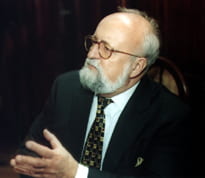 In their most recent concert series, Camerata Pacifica performed a program that featured Penderecki’s Cadenza for solo viola (composer pictured at right). Also on the program: Schumann – Märchenerzählungen, Kurtág – Hommage à R. Schumann, Op.15d; Schnittke – Praeludium in Memoriam D. Shostakovich; Bartók – Sonata No.2 for violin and piano; and Kodály – Serenade for two violins and viola, Op.12. Artists in Camerata Pacifica are NURIT PACHT violin, CATHERINE LEONARD violin, RICHARD O’NEILL viola, CAROL McGONNELL clarinet, and KEVIN FITZ-GERALD piano.
In their most recent concert series, Camerata Pacifica performed a program that featured Penderecki’s Cadenza for solo viola (composer pictured at right). Also on the program: Schumann – Märchenerzählungen, Kurtág – Hommage à R. Schumann, Op.15d; Schnittke – Praeludium in Memoriam D. Shostakovich; Bartók – Sonata No.2 for violin and piano; and Kodály – Serenade for two violins and viola, Op.12. Artists in Camerata Pacifica are NURIT PACHT violin, CATHERINE LEONARD violin, RICHARD O’NEILL viola, CAROL McGONNELL clarinet, and KEVIN FITZ-GERALD piano.
Camerata Pacifica is a chamber music ensemble based in Santa Barbara that performs a monthly series of concerts in Santa Barbara, Ventura, San Marino, and Zipper Hall in Downtown Los Angeles. The dates and locations for this past concert series were: Museum of Natural History in Santa Barbara CA (February 8); Temple Beth Torah in Ventura CA (February 10); Huntington Library in San Marino CA (February 12); Zipper Concert Hall at the Colburn School in Los Angeles CA (February 13).
Obituary
Sławomir Kulpowicz
Outstanding Polish jazz pianist, composer and producer, Sławomir Kulpowicz passed away on February 7. He was born in 1952 and had studied piano since the age of 5. He was a graduate of Warsaw Music High School and Katowice Music Academy. During his stay in Katowice he performed with Silesian Net. Once back in Warsaw he played in the Zbigniew Namysłowski Quartet, and worked on his own project, The Quartet. Later he was a member of such groups as InFormation, Pricate Music and New Formation. He often performed abroad, including three solo performances at the John Coltrane Festival in Los Angeles. He died of cancer at the age of 56.
Anniversaries
Born This Month
- 1 March 1810 – Fryderyk Chopin, virtuoso pianist, Poland’s greatest composer
- 2 March 1927 – Witold Szalonek, composer (d. 2001).
- 3 March 1922 – Kazimierz Serocki, composer, co-founder of the Warsaw AutumnFestival
- 6 March 1785 – Karol Kurpinski, composer, father of national opera
- 6 March 1835 – Ludwik Grossman, composer, pianist, and piano merchant (d. 1915)
- 7 March 1911 – Stefan Kisielewski, composer, essayist, writer
- 10 March 1937 – Bernadetta Matuszczak, composer
- 14 March 1913 – Witold Rudzinski, composer
- 17 March 1901 – Piotr Perkowski, composer
- 17 March 1925 – Tadeusz Prejzner, composer, pianist active in popular music
- 18 March 1961 – Hanna Kulenty, composer
- 21 March 1936 – Marek Stachowski, composer
- 23 March 1933 – Andrzej Trzaskowski, composer, jazz pianist and conductor
- 23 March 1888 – Lidia Kmitowa, violinist and teacher (d. 1980)
- 27 March 1927 – Joachim Olkusnik, composer
- 28 March 1954 – Pawel Szymanski,composer
Died This Month
- 1 March 2004 – Janina Garscia, composer of music for children and teacher
- 2 March 1887 – Wilhelm Troschel, singer and son of piano maker
- 4 March 1939 – Józef Sliwinski, pianist, composer (b. 1862)
- 4 March 1925 – Maurycy (Moritz) Moszkowski, composer and pianist (b. 1854)
- 4 March 1895 – Stanislaw Niedzielski, singer (baritone), choral conductor.
- 14 March 1954 – Ludomir Rogowski (b. 3 Oct 1881)
- 15 March 1883 – Karol Studzinski, violinist (b. 1828)
- 15 March 1948 – Konrad Neuger, conductor, active in the U.S. since 1931 (b. 1890)
- 19 March 1876 – Józef Stefani, composer, conductor, violinist, son of Jan (b. 1800)
- 21 March 1973 – Antoni Szalowski, composer
- 22 March 1893 – Adam Herman Hermanowski, cellist, child prodigy and virtuoso (b. 1836)
- 29 March 1937 – Karol Szymanowski, composer, pianist (b. 1882)
- 29 March 1959 – Zdzislaw Szulc, curator of music instruments museum in Poznan
- 31 March 1880 – Henryk Wieniawski, composer, virtuoso violinist (b. 1835)
- 31 March 1946 – Aleksandra Stromfeld-Klamzynska-Szuminska, soprano (b. 1859)
